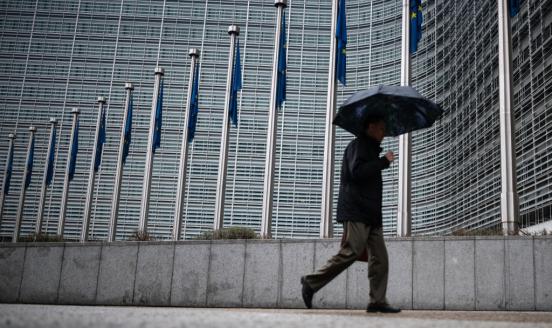Next Generation EU borrowing: a first assessment
What is new about NGEU is not just the increase in the EU’s borrowing power, but also the nature of the expenditure.

This Policy Contribution was prepared for the European Parliament’s Committee on Budgets (BUDG). The original paper is available on the European Parliament’s webpage (here). Copyright remains with the European Parliament at all times.
The Next Generation EU (NGEU) programme is radically changing the way the European Union interacts with financial markets because of its ambitious and ground breaking new public debt programme. The European Commission has adopted a new, diversified borrowing strategy, similar to that of other major issuers, to raise money safely, reliably and in a cost-effective manner. EU debt therefore has to be attractive to financial markets and must maintain a strong credit rating.
The EU plans to build a full benchmark yield curve by issuing a diverse range of debt securities, with maturities ranging from three months to thirty years. The EU has also set up a primary dealer network of eligible banks to support the issuance programme, with issuance mainly through auctions and syndicated transactions. A well-functioning dealer network is crucial to help the EU sell debt smoothly, maintain liquidity and adjust borrowing plans to market conditions. So far, the EU's first issuances have shown strong investor interest, and the EU has achieved good ratings and strong relative pricing compared to its sovereign and supranational peers.
NGEU borrowing represents a unique opportunity to lay the groundwork for a European safe asset, which could help resolve some long-standing issues with the European macro and financial architecture. For it to succeed, EU debt will need to perform at least as strongly as other major euro-area issuers in terms of primary issuance and on secondary markets. The European Commission will need to monitor its dealer network to make sure it is well positioned to support market operations. It should also be careful that its selections of banks to work with in financial operations are considered fair, transparent and unbiased.
The EU will become the largest green-bond issuer as part of NGEU's mandate to issue up to a third of its debt in this market segment. If successful, this could further serve to bolster the euro’s international role. The EU will need to balance its commitment to new climate standards against current market conditions, to make sure that NGEU debt both supports new climate finance rules and attracts sufficient investor interest.
Overall, EU-level debt should benefit EU capital markets and enhance the financial architecture of the euro area. However, to reap the benefits of EU borrowing fully, the programme would have to be made permanent and its volume larger so that it provides a benchmark yield curve and a long-term safe asset.
Recommended citation:
Christie, R., G. Claeys and P. Weil (2021) ‘Next Generation EU borrowing: a first assessment’ Policy Contribution 22/2021, Bruegel



